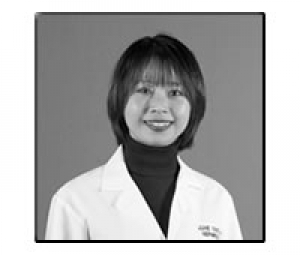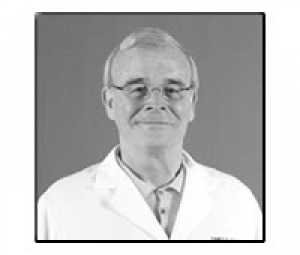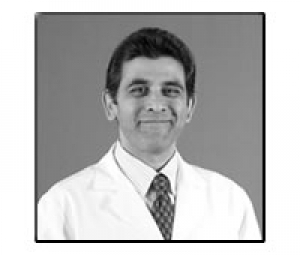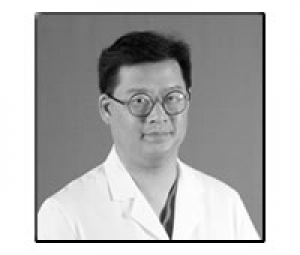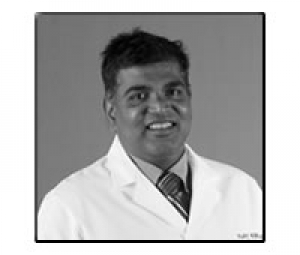FDI Creative Services
Frequently Asked Questions
Your doctor is concerned about your renal (kidney) function or another issue that is best addressed by a kidney specialist.
A nephrologist is a physician who specializes in the medical field of nephrology, which is the study, diagnosis and treatment of kidney disorders. Your nephrologist is a specialist in chronic kidney disease, end stage renal disease, kidney stones, electrolyte and fluid management disorders, hypertension, as well as blood or protein found in the urine.
You will meet with your nephrologist to discuss your medical history and current medical conditions that may be contributing to your kidney disease. Further tests may be ordered to provide additional information for your diagnosis and treatment.
It is important for you to bring the following items to your first appointment:
- Insurance card
- Photo ID
- Medications or medication list, including: dosage, frequency and milligrams
- New patient paperwork
- Any medical records you may have (we will copy them and return the originals to you)
- A personal calendar – to help schedule follow-up appointments
In addition, write down any questions you think of before your first visit. Bring these with you.
You will be asked to have lab work prior to each visit in order for the nephrologist to see how your kidneys are functioning at the time of your visit. It is important to have this information to evaluate and treat your kidney disease.
The doctor may adjust your medications based on your evaluation. He or she will consider all your medications before doing so.
Our nephrologists cover a large area of Houston including 24 dialysis units, 16 hospitals and 11 clinics. They are responsible for hospital consults, clinic visits, dialysis rounds and the heart and renal transplant program. The variety of services we provide allows our doctors to keep up with the latest information in each setting and bring this knowledge to our patients and the community.
The kidneys are bean-shaped organs located just below your rib cage in your back. They are primarily responsible for filtering your blood to remove toxins and waste products. They also help balance electrolytes and the blood acid level, and they remove excess fluid as urine to keep your body in balance. In addition, your kidneys produce hormones that prevent anemia, maintain healthy bones and regulate blood pressure.
Blood and urine tests are used to determine your kidney function. The blood tests used are Blood Urea Nitrogen (BUN) and Creatinine. These levels show your kidneys' ability to remove the blood toxins and, in general, the higher these numbers, the lower your kidney function. A 24-hour urine collection may also be used to measure your kidney function.
No. One function of the kidneys is to remove excess fluid that you take in with your diet. With reduced kidney function, extra fluid may accumulate in your body and could be dangerous. While it's important to stay hydrated, you should talk to your doctor about how much fluid is appropriate for you.
The majority of cases of CKD are caused by diabetes and high blood pressure. Other common causes include polycystic kidney disease, glomerulonephritis, obstructive uropathy and renovascular disease.
- Polycystic Kidney Disease – a genetic disease that causes numerous cysts to form on the kidney causing damage
- Glomerulonephritis – damage to the glomerulus, the functioning unit of the kidney, which is responsible for filtering waste products and fluids
- Obstructive Uropathy – the flow of urine is blocked, leading to a backup that causes damage to one or both of the kidneys
- Renovascular disease – narrowing or blockage of the renal arteries or veins that causes decreased blood flow and damages the kidneys.
Kidney failure occurs when your kidneys are not able to function properly. There are two types of kidney failure:
- Acute kidney failure happens quickly over days or weeks and may occur due to dehydration, surgery, serious infections and certain drugs.
- Chronic kidney failure, or chronic kidney disease (CKD), happens progressively over years. CKD is not reversible. It requires replacement of kidney function, with dialysis or transplantation, when the total kidney function is below 10-15%; this is often referred to as End Stage Renal Disease (ESRD).
For Your First Appointment
What can I expect at my first appointment?
You will meet with your nephrologist (a physician who specializes in kidneys) to discuss your medical history and current medical conditions. Further tests may be ordered to provide additional information for your diagnosis and treatment.
What do I need to bring with me to my first appointment?
It is important for you to bring the following items to your first appointment:
- Insurance card
- Photo ID
- Medications or medication list, including: dosage, frequency and milligrams
- New patient paperwork
- Any medical records you may have (we will copy them and return the originals to you)
- A personal calendar – to help schedule follow-up appointments
In addition, write down any questions you may think of before your first visit.
Prescription Policy
Prescription refill turnaround time is usually 24 to 48 hours depending on insurance authorization requirements. For refills, please contact your pharmacist and ask that a refill requested to the office location that you are seen at.
- Baytown office, fax – 281.428.2784
- Clear Lake office, fax – 713.316.0731
- East Central office, fax – 713.795.0717
- Museum District office, fax – 713.528.2276
- Pasadena office, fax – 713.947.6286
- Pearland office, fax – 713.795.0717
- St. Luke’s office, fax – 713.795.0717
- Southeast Memorial office, fax – 281.464.7593
- Sugar Land office, fax – 713.795.0717
- The Woodlands office, fax – 713.795.0717
It is very important for you to bring your medications to each clinic appointment.
June Yao, MD, PhD
Dr. June Yao joined Renal Specialists of Houston in 2006 after completing a fellowship in Nephrology at the prestigious Brigham and Women’s Hospital Massachusetts General in Boston. Previously teaching at Harvard Medical School and extensively published both in the United States and China, she is now Clinical Assistant Professor at Baylor College of Medicine. Dr. Yao serves as Medical Director at Fresenius Kidney Care Midtown Dialysis Center.
PROFESSIONAL/ACADEMIC APPOINTMENTS
- Clinical Assistant Professor, Dept of Medicine, Baylor College of Medicine
- Transplant Nephrologist, Baylor St. Luke’s Medical Center
- Hospitalist and Attending Physician, American Physician Inc, Banner Good Samaritan Medical Center Phoeniz AZ 2004 – 2005
- House Physician, Kindred Hospitals Boston North Shore and Boston MA 2002 – 2004
- House Physician, South Coast Health System Fall River MA 2001 – 2004
- Staff Physician, Medicine, Guangdong Institute of Radiologic Hygiene and Protection, China 1993
- Medical Student Teacher, Renal Physiology and Pathophysiology Harvard Medical School, 2001 - 2004
RENAL FELLOWSHIP
- Brigham and Women’s Hospital: Renal Unit; Department of Medicine at Massachusetts General Hospital, Harvard Medical School, Boston, MA 2001 – 2004, 2005 – 2006
RESIDENCY
- Internal Medicine, Department of Medicine, Guangdong Institute of Radiologic Hygiene and Protection, Guangdong, China 1990 – 1992
- Internal Medicine, Department of Medicine at Jacobi Medical Center, Albert Einstein College of Medicine, New York, NY 1998 – 2001
POSTGRADUATE
- PhD, Department of Pathology, Boston University School of Medicine, Boston MA 1993 – 1998
- MA, Department of Pathophysiology, Sun Yat-Sen University of Medical Sciences, China 1987 - 1989
MEDICAL SCHOOL
- Sun Yat-Sen University of Medical Sciences, China 1981 - 1987
BOARD CERTIFICATION
- American Board of Internal Medicine
- American Board of Internal Medicine Diplomate in Nephrology
AREAS OF CLINICAL INTEREST
- Dialysis Management
- Kidney Transplantation
- Electrolyte Abnormalities
- Glomerulonephritis
- Chronic Kidney Disease
HOSPITAL AFFILIATIONS
- CHI Baylor St Luke’s Medical Center
- Cornerstone Hospital
- HCA Houston Healthcare Clear Lake
- HCA Houston Healthcare Pearland
- HCA Houston Healthcare Southeast
- Houston Methodist Baytown
- Houston Methodist Clear Lake
- Houston Methodist Medical Center
- Kindred Bay Area Hospital
- Kindred Clear Lake
- Kindred Medical Center
- Memorial Hermann Pearland Hospital
- Memorial Hermann Southeast Hospital
- PAM Rehabilitation Hospital of Clearlake
- PAM Rehabilitation Hospital of Clearlake North
- St. Luke’s Patients Medical Center
MEDICAL ASSOCIATIONS
- National Kidney Foundation
- American Medical Association
- Boston Cancer Research Association
- Chinese Medical Society
AWARD AND HONORS
- Outstanding Achievement in the Teaching of Medical Students, Albert Einstein College of Medicine, NY 2000
RESEARCH
- Research fellow at Dr. Martin Pollak’s lab, Harvard Medical School, Boston. 2001 - 2004
- Mechanisms of Actinin-4 mutations mediated autosomal dominant focal segmental glomerulosclerosis.
- Natural history of focal segmental glomerulosclerosis caused by autosomal dominant Actinin-4 mutations.
- Search for new gene mutations in familiar kidney diseases.
- Mechanisms of tumorigenicity; Dr. Jacqueline Sharon’s lab, Boston University School of Medicine 1993 - 1998
- Effects of long- term low grade radiation on humans, a WHO project, Department of Guangdong Institute of Radiological Hygiene and Protection, China. 1990 - 1992
- Mechanism of aplastic anemia in mouse model, Dr. Shunong Li’s lab, Sun Yat-Sen University of Medical Sciences, China 1987 – 1989
PUBLICATIONS
- June Yao and Nina Tolkoff-Rubin (2006): Infection in Hemodialysis Patients, invited review, Seminars in Nephrology.
- June Yao, Stefanie Herbert, Peter Kenlan and Martin Pollak (2006): The Natural History of actinin-4 Associated FSGS, submitted for review.
- June Yao, Tu Cam Le, Claudine H. Kos, Joel M. Henderson, Phillip G. Allen, Bradley M. Denker and Martin Pollak: A-Actinin-4 mediated FSGS: An inherited kidney disease caused by an aggregated and rapidly degraded cytoskeletal protein. PloS Biology 2(6), 2004.
- June Yao, Joshua Schimmer, Asher Schachter, Esteban Poch, Patricia Abreu, Gerald Appel, Aparecido Pereira, Raghu Kalluri, and martin pollak: NPHS2 mutations in late-onset focal segmental glomerulosclerosis: R229Q is a common disease-associated allele. J. Clin. Invert. 110:1659-1666,2002.
- June Yao, Clair Barcher-Allan and Jacqueline Sharon: Serpins identified as cell growth inhibitors in human plasma. Mol Cell Bio Commun. 3:76-81, 2000.
- June Yao, Z.X. Lin and Y.R. Cha, Preliminary study on the effects of long term low level radiation on human immune system. Chinese Medical J 1995.
- S.N. Li, June Yao, J. Chen, X.Y. Liang, X.M. Chang and Q.Z. Huang. Effect of GVHR in the pathogenesis of immunological medicated aplastic anemia in mice. Chinese Pathophysiology. 9:347, 1993.
- J. Chen, S.N. Li and June Yao. Changes of bone marrow CFU’s in immune medicated aplastic anemia mice and it’s mechanism. Chinese J. of Hematology. 12:286,1991.
- J. Chen, S.N. Li and June Yao. Changes of bone marrow CFU’s in immune mediated anemia in mice and it’s mechanism. Academic J. of Sun Yat-Sen University of Medical Sciences. 12:32, 1991.
- June Yao and S.N. Li . Laboratory study on the relation between lymphocytes and aplastic anemia. Chinese J. of Hematology. 12:229, 1991.
- June Yao and S.N. Li. Establishment of an aplastic anemia model in mice by immunologically competent cells. Academic J. of Sun Yat-Sen University of Medical Sciences. 11:110,1990.
PRESENTATIONS
- Effects of long term low level radiation on the immune system in in human beings, International Symposium on Biological Effects of Lower Level Exposures to Radiation and related Agents, China 1993.
- A cytotoxic factor in human and mouse sera which strongly affects the growth of a non-tumorogenic human colon cancer cell line, Boston Area Graduate Student Symposium in Biology, Boston, MA 1995.
- Soluble factors controlling tumor growth, Seminar Series at Departmentof Pathology, Boston University School of Medicine, Boston, MA 1997.
- Biochemical analyses of disease-causing alpha-actinin-4 mutants. Brigham and Women’s Hospital Research Fellows Poster Exhibition, Boston, MA 2003.
- Biochemical analyses of disease-causing alpha-actinin-4 mutants. ASN36th Annual Meeting & Scientific Expo, Philadelphia, PA 2003.
- The Natural History of actinin-4 Associated FSGS, ASN 37th Annual Meeting, St. Louis, MO 2004.
Katherine Timmins, MD
Dr. Katherine Timmins-Vollmers joined Renal Specialists of Houston in 1997 after completing a research and clinical fellowship in Nephrology at Baylor College of Medicine. She serves in multiple capacities at CHI Baylor St. Luke’s Medical Center: Chief of Staff, UNOS Program Director of Kidney Transplantation, Nephrology Section Chief, and Medical Director of Dialysis. Among her many accolades, she has been recognized as a “Texas Super Doctor” for the past five years in a row by Texas Monthly Magazine. Dr. Timmins is Medical Director at Fresenius Kidney Care East Central Dialysis.
PROFESSIONAL/ACADEMIC APPOINTMENTS
- Clinical Professor, Dept of Medicine, Baylor College of Medicine
- Chair, Quality of Care & Patient Safety Committee, Baylor St. Luke’s Medical Center
- Chief of Staff, Baylor St. Luke’s Medical Center
- Chief of Nephrology, Baylor St. Luke’s Medical Center
- Medical Director, Baylor St. Luke’s Medical Center Dialysis
- Nephrology Representative, Ebola Response Team
- Clinical Instructor Internal Medicine Ben Taub General Hospital Emergency Room
RENAL FELLOWSHIP
- Baylor College of Medicine, Houston Texas
- Clinical Fellowship 1995 – 1997
- Research Fellowship 1994 - 1995
RESIDENCY
- Baylor College of Medicine, Houston, Texas 1991 - 1994
MEDICAL SCHOOL
- Texas Tech University Health Science Center, Lubbock, TX 1986 - 1991
BOARD CERTIFICATION
- American Board of Internal Medicine
- American Board of Internal Medicine Diplomat Nephrology
AREAS OF CLINICAL INTEREST
- Acute and chronic renal failure
- Renal Transplantation
- Lupus
- Vasculitis and Glomerulonephritis
- Chronic Kidney Disease
HOSPITAL AFFILIATIONS
- CHI Baylor St Luke’s Medical Center
- Cornerstone Hospital
- HCA Houston Healthcare Clear Lake
- HCA Houston Healthcare Pearland
- HCA Houston Healthcare Southeast
- Houston Methodist Baytown
- Houston Methodist Clear Lake
- Houston Methodist Medical Center
- Kindred Bay Area Hospital
- Kindred Clear Lake
- Kindred Medical Center
- Memorial Hermann Pearland Hospital
- Memorial Hermann Southeast Hospital
- PAM Rehabilitation Hospital of Clearlake
- PAM Rehabilitation Hospital of Clearlake North
- St. Luke’s Patients Medical Center
MEDICAL ASSOCIATIONS
- American Medical Association
- Texas Medical Association
- American College of Physicians
- Harris County Medical Society
AWARD AND HONORS
- Texas Super Doctor, Texas Monthly 2014-2018
- Top Nephrologists in Texas, US News & World Report 2013
- Outstanding Clinical Faculty Member Award, Baylor College of Medicine
- Excellence in Teaching Award, Baylor College of Medicine 2005
- Excellence in Teaching Award, Baylor College of Medicine 2002
PRESENTATIONS/RESEARCH
- “Quality Matrix in Solid Organ Transplant,” Baylor St. Luke’s Medical Center Transplant Roundup Conference 3/2019
- “The effects of calcium channel blockers on PMCA-1 and PMCA-3 in rat aorta smooth muscle cells,” Research Fellowship, Nephrology Baylor College of Medicine 1994
Camilo Barcenas, MD, FACP
Founder and president of Renal Specialists of Houston (1975), Dr. Camilo Barcenas received his fellowship in nephrology from the University of Texas Southwestern in Dallas. He served for many years as Chief of Nephrology and Medical Director of Renal Transplantation at the Texas Heart Institute at St. Luke’s Episcopal Hospital, where he worked closely with Dr. Denton Cooley in the groundbreaking management of patients with combined heart and renal disease.
Dr. Barcenas is a visionary. He was one of the first to see the need for renal care outside of the Houston Medical Center, especially in underserved and tragically ignored regions of the city. Because of him, our practice serves a large and growing number of communities. Fluent in Spanish, Dr. Barcenas takes a leadership role in the management of Fresenius dialysis patients and serves as medical director of Sunnyside Dialysis Center and Southeast Kidney Center.
PROFESSIONAL/ACADEMIC
- Renal Specialists of Houston, 1975 – current
- Clinical Professor, Internal Medicine 1995 – 2009, Baylor College of Medicine
- Chief, Nephrology Section 1976 – 2009 Department of Medicine St. Luke’s Episcopal Hospital Houston TX
- Medical Director, Renal Transplantation 1983 - 2009 Texas Heart Institute at St Luke’s Episcopal Hospital Houston TX
- Chief, Hemodialysis Unit 1975, Veterans Administration Hospital Dallas TX
- Chief, Home Dialysis Training Unit July 1974 Veterans Administration Hospital Dallas, Texas
RENAL FELLOWSHIP
- University of Texas Southwestern in Dallas, 1972 - 1974
RESIDENCY
- Baylor College of Medicine, Houston TX 1970 – 1972
- Internship Mount Sinai Hospital University of Connecticut, 1969
- Rotating Internship Managua General Hospital, Nicaragua 1967 - 1968
MEDICAL SCHOOL
- University of Nicaragua
BOARD CERTIFICATION
- Diplomate, American Board of Internal Medicine
- Diplomate, American Board of Internal Medicine in Nephrology
- Fellow, American College of Physicians
AREAS OF CLINICAL INTEREST
- End-stage Renal Disease
- Renal Replacement Therapies
AWARDS
- American Top Doctors, 2003 – 2006
- Houston Top Doctors, Nephrology, 2006
- Outstanding Clinical Faculty, Baylor College of Medicine 1993 - 2000
Sibtain Ali, MD
Dr. Sibtain Ali joined Renal Specialists of Houston in 2002. After receiving his fellowship training in Nephrology from the prestigious Cleveland Clinic Foundation in Ohio, he worked in Virginia for 4 years before moving to Texas. Practicing primarily in the southeast Houston area, Dr. Ali has served as Chief of Staff at Memorial Hermann Southeast Hospital. He is Medical Director of Fresenius Kidney Care Pearland Dialysis Center.
PROFESSIONAL/ACADEMIC
- Clinical Instructor, Internal Medicine/Nephrology. Baylor College of Medicine, Houston TX
- Physician Advocacy and Communications Committee, Memorial Hermann Southeast Hospital
- Chief of Staff, Memorial Hermann Southeast Hospital 2013 - 2014
- Internal Medicine Specialists of Emporia, PC Virginia 1997 - 2001
RENAL FELLOWSHIP
- Nephrology and Hypertension: The Cleveland Clinic Foundation 1995 - 1997
RESIDENCY
- Internal Medicine, Lutheran Medical Center at Cleveland, Ohio
- Internal Medicine, The Cleveland Clinic Foundation, Ohio
- 1992-1995
POST GRADUATE TRAINING
- Internal Medicine: Rawalpindi, Pakistan
- General Surgery: Rawalpindi Pakistan
- Resident Officer: Aga Khan University Hospital, Aga Khan University Hospital
- 1988 - 1991
BOARD CERTIFICATION
- American Board of Internal Medicine
- American Board of Internal Medicine, Subspecialty Nephrology
AREAS OF CLINICAL INTEREST
- Fluid and electrolyte balance
- Glomerulonephritis
- Dialysis
HOSPITAL AFFILIATIONS
- CHI Baylor St Luke’s Medical Center
- Cornerstone Hospital
- Encompass
- HCA Houston Healthcare Clear Lake
- HCA Houston Healthcare Pearland
- HCA Houston Healthcare Southeast
- Houston Methodist Baytown
- Houston Methodist Clear Lake
- Houston Methodist Medical Center
- Kindred Bay Area Hospital
- Kindred Clear Lake
- Kindred Medical Center
- Memorial Hermann Pearland Hospital
- Memorial Hermann Southeast Hospital
- PAM Rehabilitation Hospital of Clearlake
- PAM Rehabilitation Hospital of Clearlake North-
- St. Luke’s Patients Medical Center
MEDICAL ASSOCIATIONS
- American Society of Nephrology
- American Medical Association
PUBLICATIONS/PRESENTATIONS
- High Grade Atherosclerotic Renal Artery Stenosis in Patients with Chronic Renal Insufficiency is Not Characterized by Rapid Deterioration in Renal Function. Abstract presentation, American Society of Nephrology, November 1997
Jesse Uyeda, MD
Dr. Jesse Uyeda joined Renal Specialists of Houston in 1996 after completing his fellowship in Nephrology at the University of Texas Medical School at Houston. Working primarily in the southeast Houston area, he is an interventional nephrologist specializing in the critical maintenance and management of vascular dialysis accesses. He is Medical Director of Fresenius Kidney Care Deer Park Dialysis Center.
PROFESSIONAL/ACADEMIC APPOINTMENTS
- Volunteer Faculty, Baylor College of Medicine
RENAL FELLOWSHIP
- University of Texas Medical School, Houston, Texas 1994 - 1996
RESIDENCY
- University of Texas Medical School, Houston, Texas 1991 - 1994
MEDICAL SCHOOL:
- Baylor College of Medicine, Houston, Texas 1987 - 1991
BOARD CERTIFICATION
- American Board of Internal Medicine
- American Board of Medicine, Diplomate in Nephrology
AREAS OF CLINICAL INTEREST
- Dialysis accesses and interventional radiology
- Renal replacement therapies
HOSPITAL AFFILIATIONS
- CHI Baylor St Luke’s Medical Center
- Cornerstone Hospital
- Encompass
- HCA Houston Healthcare Clear Lake
- HCA Houston Healthcare Pearland
- HCA Houston Healthcare Southeast
- Houston Methodist Baytown
- Houston Methodist Clear Lake
- Houston Methodist Medical Center
- Kindred Bay Area Hospital
- Kindred Clear Lake
- Kindred Medical Center
- Memorial Hermann Pearland Hospital
- Memorial Hermann Southeast Hospital
- PAM Rehabilitation Hospital of Clearlake
- PAM Rehabilitation Hospital of Clearlake North-
- St. Luke’s Patients Medical Center
Vijay Koka, MD
Dr. Vijay Koka joined Renal Specialists of Houston in 2007 after completing a fellowship in Nephrology at Baylor College of Medicine. With a previous master’s degree in public health from Harvard University, he has been published in numerous medical journals, including Circulation and Nephrology. Dr. Koka practices primarily in the southeast/Pasadena region, and is Medical Director at Fresenius Kidney Care LaPorte and Strawberry dialysis facilities.
PROFESSIONAL/ACADEMIC APPOINTMENTS
- Volunteer Faculty, Baylor College of Medicine
- Hospitalist, Meritcare Hospital North Dakota 2002 - 2004
RENAL FELLOWSHIP
- Baylor College of Medicine, Houston Texas 2004 - 2007
RESIDENCY
- University of North Dakota, Fargo ND 1999 – 2002
- National University of Singapore, Research Student 1997 – 1998
- Medwin Hospital, Hyderabad India 1997
- Mediciti Hospital, Hyderabad India 1996
POSTGRADUATE
- Masters in Public Health, Harvard University School of Public Health 1998 - 1999
MEDICAL SCHOOL
- Christian Medical College, Vellore India 1990 – 1996
- Medicine and Surgery
BOARD CERTIFICATION
- American Board of Internal Medicine
- American Board of Internal Medicine Diplomate in Nephrology
AREAS OF CLINICAL INTEREST
- Hypertension
- Vasculitis and Glomerulonephritis
- Chronic Kidney Disease
- Dialysis
- Dialysis Access Management
HOSPITAL AFFILIATIONS
- CHI Baylor St Luke’s Medical Center
- Cornerstone Hospital
- HCA Houston Healthcare Clear Lake
- HCA Houston Healthcare Pearland
- HCA Houston Healthcare Southeast
- Houston Methodist Baytown
- Houston Methodist Clear Lake
- Houston Methodist Medical Center
- Kindred Bay Area Hospital
- Kindred Clear Lake
- Kindred Medical Center
- Memorial Hermann Pearland Hospital
- Memorial Hermann Southeast Hospital
- PAM Rehabilitation Hospital of Clearlake
- PAM Rehabilitation Hospital of Clearlake North
- St. Luke’s Patients Medical Center
PUBLICATIONS/RESEARCH
- Koka V, Wang W, Huang XR, Kim-Mitsuyama S, Truong LD, Lan HY. Advanced glycation end products activate a chymase-dependent angiotensin II-generating pathway in diabetic complications. Circulation. 2006 March 14;113(10):1353-60.
- Wang W. Koka V. Lan HY. Transforming growth factor-beta and Smad signaling in kidney diseases. Nephrology (Carlton).2005 Feb;10(1):48-56.
- Potti A, Ganti AK, Tuchman SA, Sholes K, Langness E, KokaV, Koch M. HER-2/neu and CD117 (c-kit) over expression in patients with pesticide exposure and extensive stage small cell carcinoma (ESSCLC). J Carcinog, 2005 June 9;4-8.
- Potti A, Forseen SE, Koka VK, Pervez H, Koch M, Fraiman G.Mehdi SA, Levitt R. Determination of HER-2/neu overexpression and clinical predictors of survival in a cohort of 347 patients with primary malignant brain tumors. Cancer Invest.2004;22(4):537-44.
- Koka V, Potti A, Forseen SE, Pervez H, Fraiman GN, Koch M.Levitt R. Role of HER 2/neu over expression and clinical determinants of early mortality in glioblastoma multiforme.Am J Clin Oncol.2003 Aug;26(4):332-5.
- Ganti AK, Potti A, Koka VK, Pervez H, Mehdi SA. Myeloproliferative syndromes and the associated risk of
- coronary artery disease. Thromb Res.2003 May 1;110(2,3)83-6.
- Abdel-Raheem MM, Potti A, Tadros S. Koka V, Hanekom D,Fraiman G, Danielson BD. Effect of low-molecular-weight heparin on potassium homeostasis. Pathophysiol Haemost Thromb.2002 May-June;32(3):107-10.
- Froseen SE, Potti A, Koka V, Koch M, Fraiman G, Levitt R. Identification and relationship of HER-2/neu over expression to short term mortality in primary malignant brain tumors. Anticancer Res. 2002 May-June;22(3):1599-602.











